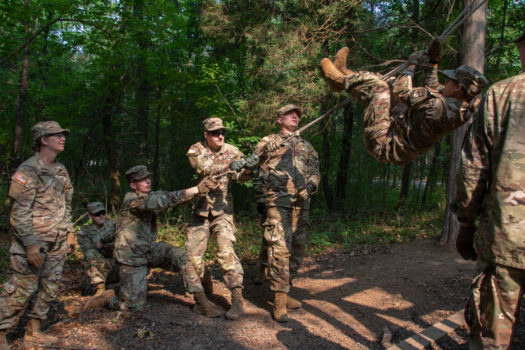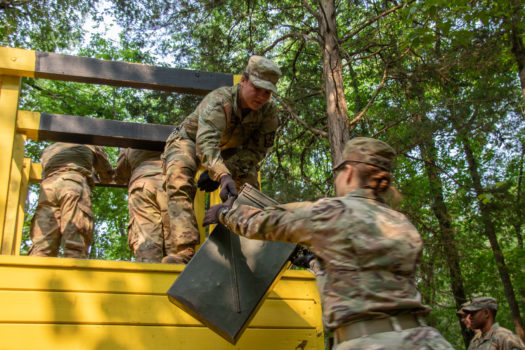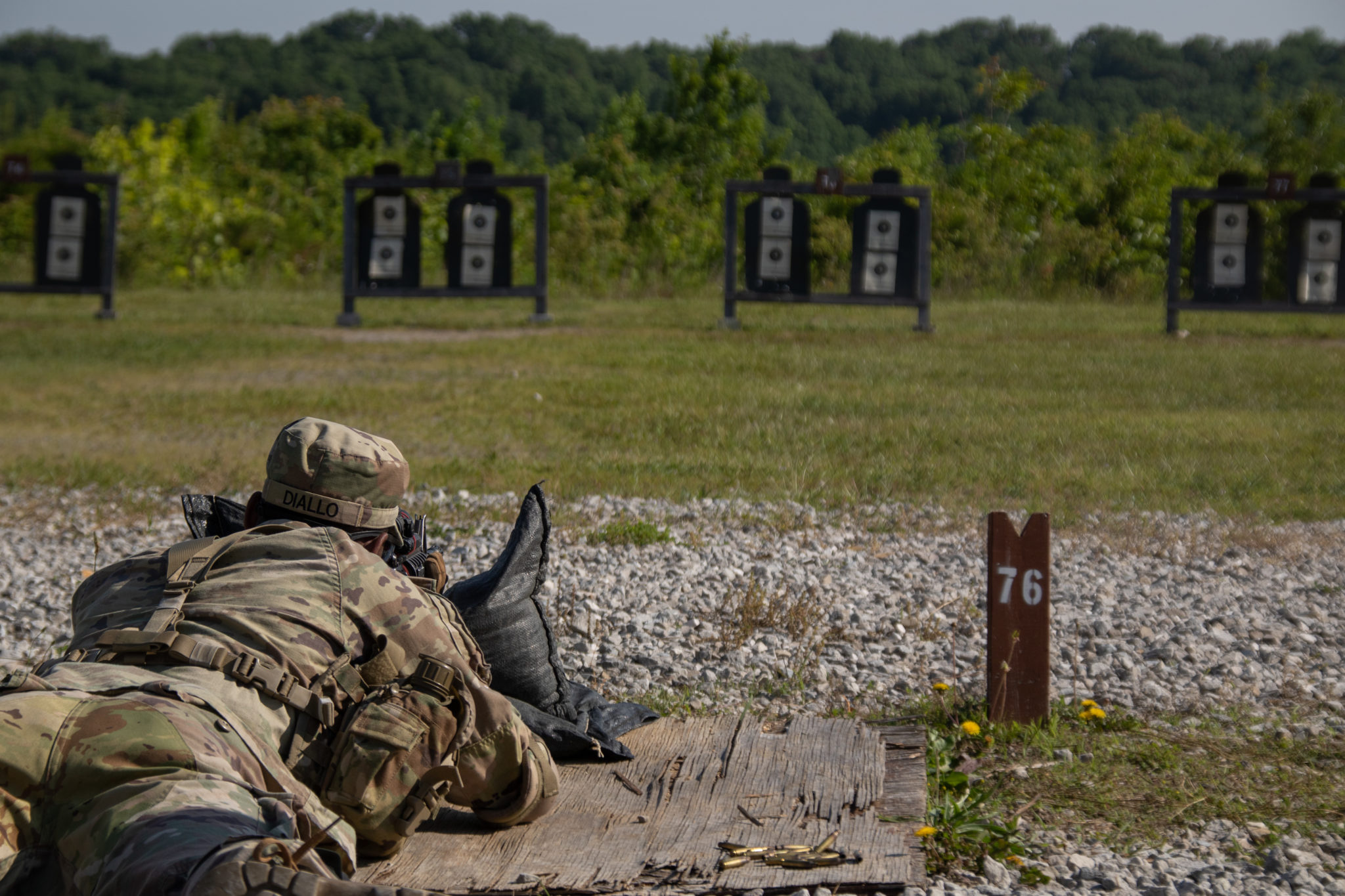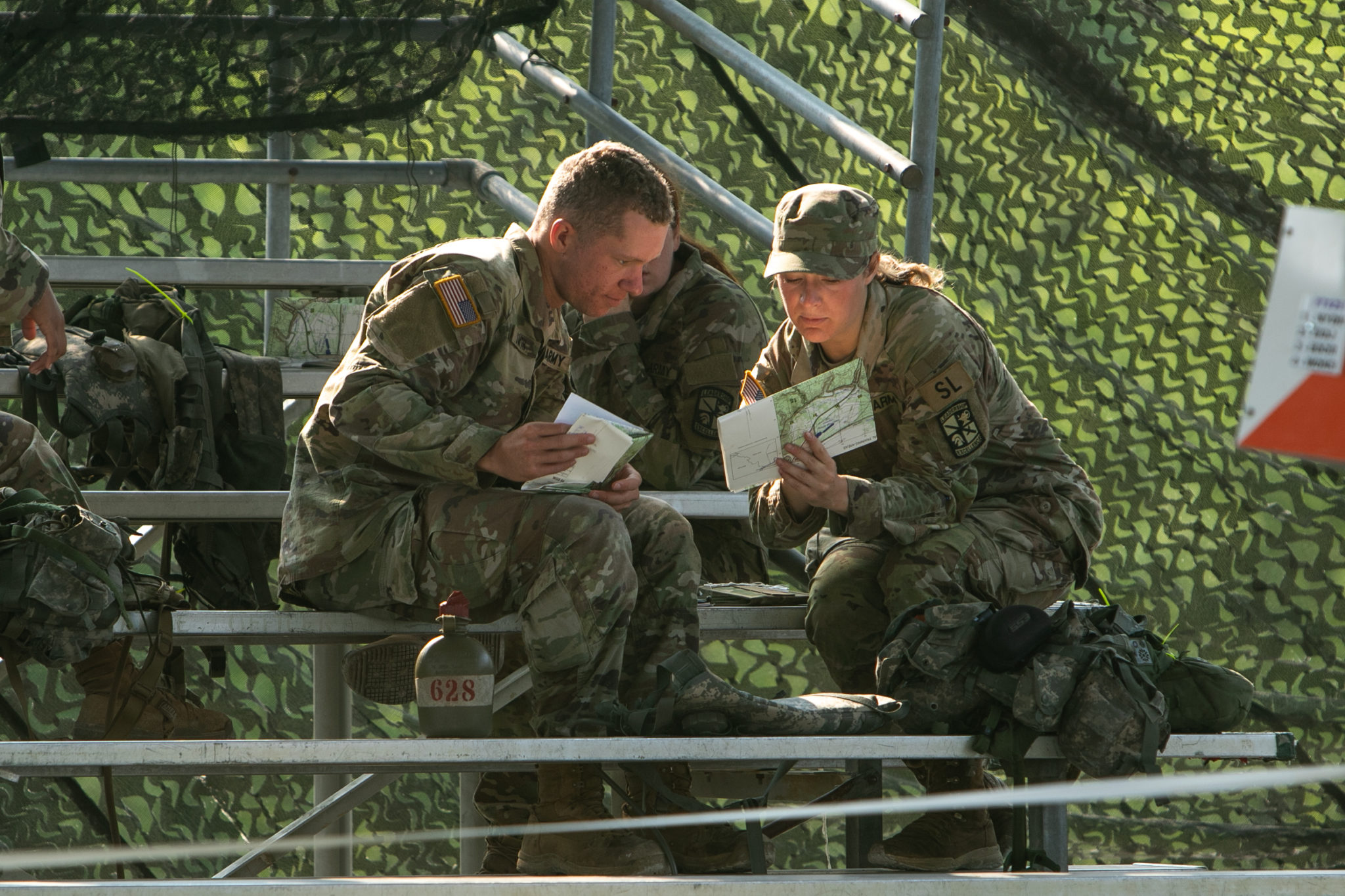FORT KNOX, Ky. – The field leadership reaction course, known as FLRC, puts Cadet’s strength, quick thinking and teamwork to the test. Cadet Lauren Alexander, Indiana University, is doing her best to move as a member of a team during FLRC, June 15, 2023.
“I think we are working extremely well, especially given that this is our first tactical event where people are switching leadership,” said Alexander.
Cadets must complete as many obstacle courses as possible within the four-hour time limit. A team leader receives a briefing from Cadre about the obstacle, then they inform their teammates about the rules and objectives.

Capt. Killian Burns, 3rd Regiment platoon training officer, explains in more detail what the goal is for the Cadets during FLRC.
“This is where we stress the Cadets a little bit, give them a challenge that may or may not be something that they are capable of doing, and see how they work together as a team to accomplish it,” Burn said.
The Cadre play a critical role in the Cadet’s success this summer and during FLRC. Burn is watching for specific intangibles as Cadets navigate each obstacle.
“We are looking for those leadership qualities that they are going to be demonstrating while they are on the course and see how their strengths and weaknesses play amongst the members of their team,” Burn said.
Leadership is a skill that can be difficult to pull off successfully when thrown into a group of new people, but not impossible.
There was great collaboration during the planning before each obstacle, said Alexander. “People who have that leadership quality are giving really good ideas and not just letting the leader fumble.”
When it comes to completing each obstacle, it takes everyone to brainstorm on what to do next. Alexander was the leader for one called “Sabotage”, which is intentionally designed to be unsolvable.

“The whole point of it, is that your team is supposed to get super frustrated and start getting mad at each other, but our team had really good solutions,” Alexander said. “Each time someone gave a solution, they’re like, ‘That’s a really good idea. Let’s put it to the test.’ No one shot anything down.”
Bringing in different people with a spectrum of different backgrounds and skill levels can be challenging for a team. Alexander’s role as a mediator created a cohesive environment for her team to succeed.
“I’m very much a levelheaded mediator person. If someone’s going a little too ham, I’m kind of a comic relief and I’m like ‘Yo dog, we good actually,’” Alexander said. “I think being that someone who can take a step back and not get so caught up in the situation helps bring others back and realize this is not life or death.”
The Cadets face many challenges as a team, and this course is just the beginning of what they will encounter down the road.
“If you have someone who’s more timid and quiet, those strong personalities sometimes don’t realize that they’re overtaking,” Alexander said. “I think at the end of the month, we’ll all be in that position where we can go from leader to follower and vice versa.”
Cadets coming into CST have a lot of challenges coming their way along with a lot to look forward to.
“For anyone going to camp or at camp, you’re going to have sucky moments, but you got to make the fun out of the suck,” Alexander said. “The people around you make it, they really do.”




